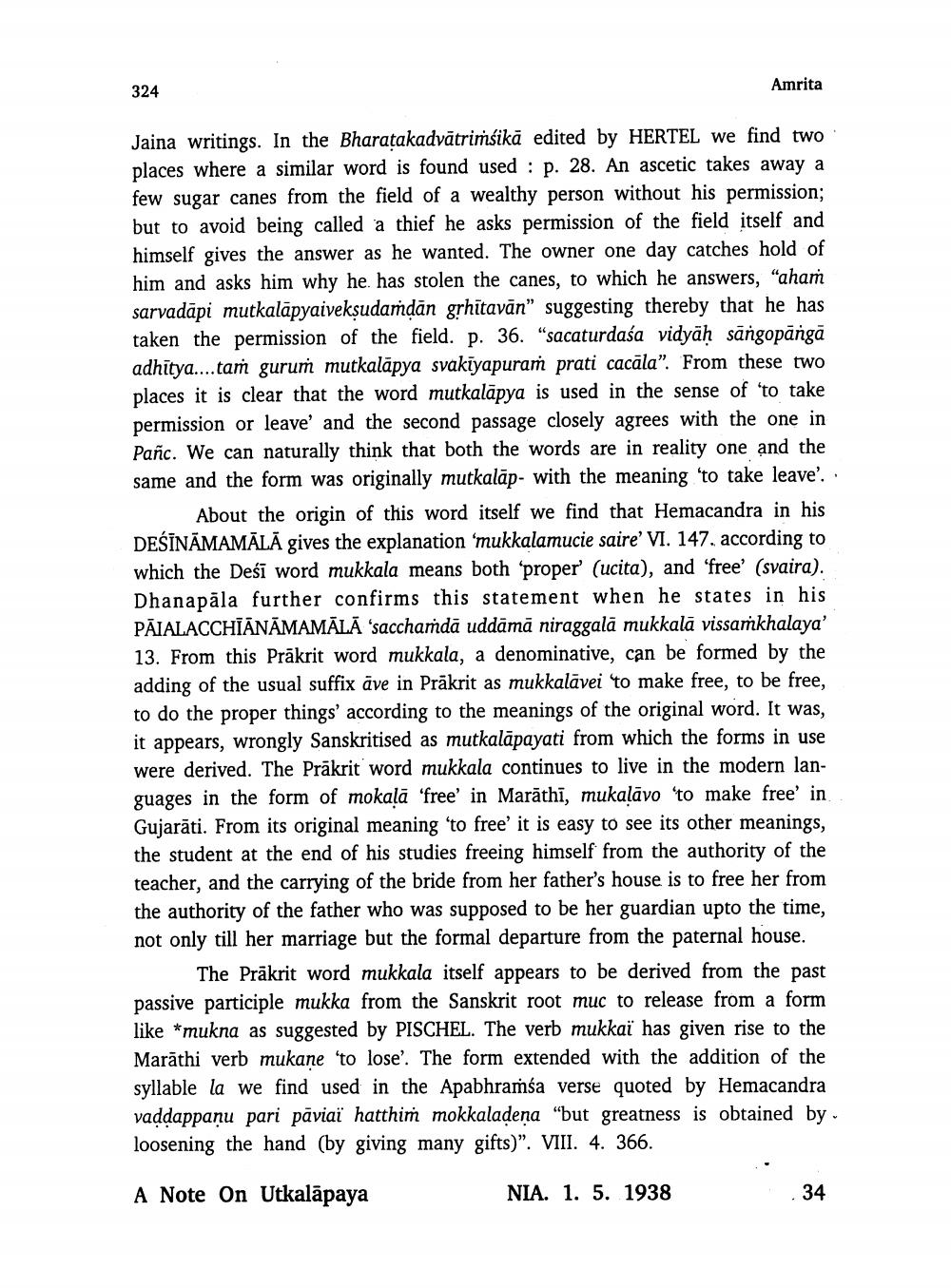________________
324
Amrita
Jaina writings. In the Bharatakadvātrimśikā edited by HERTEL we find two places where a similar word is found used : p. 28. An ascetic takes away a few sugar canes from the field of a wealthy person without his permission; but to avoid being called a thief he asks permission of the field itself and himself gives the answer as he wanted. The owner one day catches hold of him and asks him why he has stolen the canes, to which he answers, "aham sarvadāpi mutkalāpyaiveksudamdan grhītavān" suggesting thereby that he has taken the permission of the field. p. 36. "sacaturdaśa vidyāḥ sāngopāngā adhitya....taṁ gurum mutkalāpya svakiyapuraṁ prati cacāla”. From these two places it is clear that the word mutkalāpya is used in the sense of 'to take permission or leave and the second passage closely agrees with the one in Pañc. We can naturally think that both the words are in reality one and the same and the form was originally mutkalāp- with the meaning to take leave'. .
About the origin of this word itself we find that Hemacandra in his DEŠĪNĀMAMĀLĀ gives the explanation 'mukkalamucie saire' VI. 147. according to which the Deśī word mukkala means both 'proper' (ucita), and 'free' (svaira). Dhanapāla further confirms this statement when he states in his PĀIALACCHIĀNĀMAMĀLĀ 'sacchamdā uddāmā niraggalā mukkalā vissaṁkhalaya' 13. From this Prākrit word mukkala, a denominative, can be formed by the adding of the usual suffix ave in Prākrit as mukkalāvei to make free, to be free, to do the proper things' according to the meanings of the original word. It was, it appears, wrongly Sanskritised as mutkalāpayati from which the forms in use were derived. The Prākrit word mukkala continues to live in the modern languages in the form of mokalā 'free' in Marāthī, mukalāvo 'to make free in Gujarāti. From its original meaning 'to free' it is easy to see its other meanings, the student at the end of his studies freeing himself from the authority of the teacher, and the carrying of the bride from her father's house is to free her from the authority of the father who was supposed to be her guardian upto the time, not only till her marriage but the formal departure from the paternal house.
The Prākrit word mukkala itself appears to be derived from the past passive participle mukka from the Sanskrit root muc to release from a form like *mukna as suggested by PISCHEL. The verb mukkaï has given rise to the Marāthi verb mukane 'to lose'. The form extended with the addition of the syllable la we find used in the Apabhraíśa verse quoted by Hemacandra vaddappaņu pari pāviai hatthiṁ mokkaladena "but greatness is obtained by loosening the hand (by giving many gifts)”. VIII. 4. 366.
A Note On Utkalāpaya
NIA. 1. 5. 1938
34




